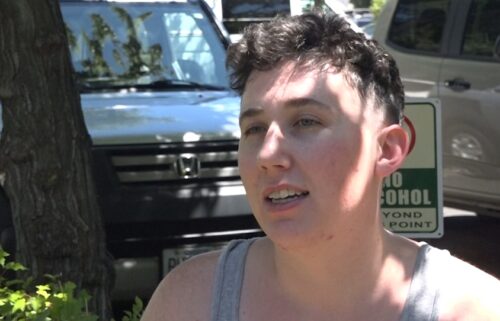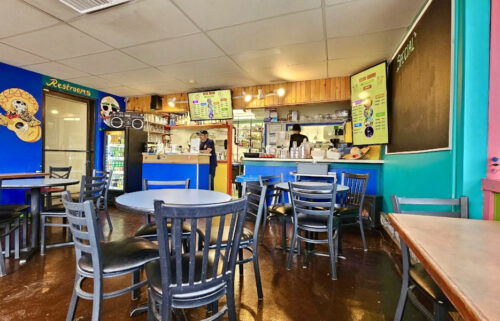OSU part of grant to study link between microbiome, autism

An Oregon State University researcher is part of a $1.94 million grant to look for possible connections between the human microbiome and autism spectrum disorder.
The goal is to use data from the microbiome – the community of organisms that live in a person’s gut – in the search for new treatments for autism spectrum disorder, a developmental disorder that affects communication and behavior.
In the United States, roughly one child in 70 has autism spectrum disorder; boys are four times as likely as girls to have the condition. Symptoms usually appear by age 2.
Maude David, an assistant professor in Oregon State’s colleges of Science and Pharmacy, will collaborate with researchers at the Stanford University School of Medicine and Second Genome, a company based in South San Francisco, California, on a two-year project funded by a federal Small Business Innovation Research grant.
The grant will support the study of key metabolites produced by microbes in patients with central nervous system disorders, particularly autism. Some of those metabolites may be able to pass through the blood-brain barrier, which protects the brain from toxins in the bloodstream, and negatively affect the central nervous system.
Certain microbial strains are either lacking or severely decreased in children with autism spectrum disorder.
“This project is especially exciting because it uses a top-to-bottom approach with crowd-sourced samples to identify the metabolites that we’ll ultimately test in mouse models,” David said.
OSU has several areas of responsibility in the project, she added, including applying computational models of the blood-brain barrier and ramping up several new behavioral tests for the mice used in the study.
“One of the most interesting pieces of the puzzle is our attempt to combine microbial profiling and genetic variants in humans to determine the most relevant features, either of the microbiome or the host,” said David, who on this part of the project will work with Dr. Dennis Wall of Stanford, an expert in human genetic variation.
Second Genome, a company focused on the development of novel therapeutics identified through microbiome science, is the SBIR grant recipient and will work with OSU and Stanford to study the relationship between the human microbiome and autism spectrum disorder.
The researchers have enrolled 111 pairs of siblings, each born within two years of the other, in the study; one sibling is on the autism spectrum, the other is not.
Each pair of siblings lived in same house and provided stool and saliva samples over a period of time, and their parents charted each sibling’s diet and behavior for three weeks.
“Recent studies have implicated the microbiome in several central nervous system disorders, including autism, Parkinson’s and Alzheimer’s disease, and even addiction,” said Todd DeSantis, Second Genome’s co-founder and vice president of informatics. “As we mine the increasing amount of data coming from the microbiome, we look forward to developing clinically relevant therapeutics to improve patient care in autism and other disease areas.”



